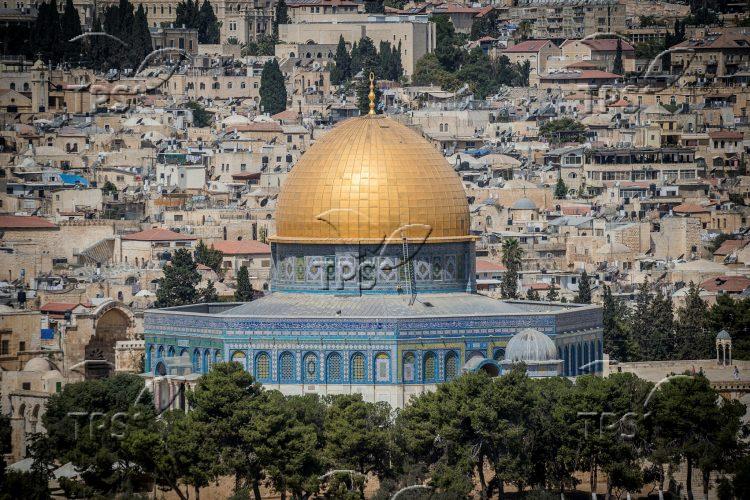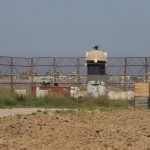As Ramadan Violence Looms in Jerusalem, Arab-Israeli Lawmakers Meet Jordanian King
Jerusalem, 4 March, 2024 (TPS) -- Two Arab-Israeli lawmakers visited Jordan on Monday to discuss with King Abdullah the Temple Mount and the likelihood of violence there during the upcoming Islamic holy month of Ramadan.
The royal court’s official account on X, formerly called Twitter, posted a photo of the king hosting MKs Ayman Odeh and Ahmed Tibi in Amman.
“His Majesty King Abdullah II meets with the head of the Hadash-Ta’al list in the Knesset, MK Ayman Odeh, and members MK Ahmad Tibi and MK Youssef Atauna, and warns of the continuation of the war on Gaza and escalation in the West Bank and Jerusalem, which will expand the conflict,” the tweet said.
In the last several years, Palestinian terror has surged ahead of and during Ramadan. Ramadan is expected to begin at sundown on March 10.
Hamas leader Ismail Haniyeh recently called on Palestinians to stage a mass march on the Temple Mount on the first day of Ramadan. Hamas has also threatened an “explosion” of rage if Israel moves to restrict Muslim worshippers from visiting the Temple Mount during Ramadan.
On Sunday, Palestinian Islamic Jihad released a 13-minute video calling for Ramadan to become “a month of terror” and urging “unity of the battlefields,” a reference to the escalation and participation of Iranian proxy terror groups in Lebanon, Syria, Iraq and Yemen against Israel.
“We are certain that the single body of the nation will do the impossible and will make the month of Ramadan historic days to wash away shame and threaten the existence of the Israeli enemy entity and global arrogance,” Hamza said.
Israeli authorities are deliberating on whether to restrict access to the holy site. A meeting of police officials and Prime Minister Benjamin Netanyahu scheduled for Monday was canceled when Netanyahu came down with the flu.
National Security Minister Itamar Ben-Gvir is reportedly pushing to ban non-citizen Palestinians from the Temple Mount.
During last year’s Ramadan, Palestinians barricaded themselves inside the Al-Aqsa Mosque, while Hamas squads in Lebanon fired rockets at Israel during Passover, which overlapped with Ramadan.
During Ramadan of 2022, Palestinians killed 15 Israelis in terror attacks ranging from shooting, stabbing and car-ramming attacks. The surge of violence continued after Ramadan – four more Israelis were killed during the spring – and the Israel Defense Forces cracked down, launching Operation Wave Breaker.
By the end of 2022, counterterror operations thwarted more than 500 attacks, but 31 Israelis were killed.
During Ramadan of 2021, Hamas orchestrated a barrage of rocket attacks from Gaza, triggering a full-blown 11-day war. The violence spilled over into Arab-Israeli communities, where simmering tensions erupted into widespread riots and unrest.
The Temple Mount, where the First and Second Jewish Temples were built, is the overall holiest site in Judaism. The Western Wall is the only remnant of a retaining wall encircling the Temple Mount built by Herod the Great in the first century and is the holiest site where Jews can freely pray.
The delicate status quo governing the Temple Mount goes back to 1967 when Israel liberated the Old City of Jerusalem from Jordan during the Six-Day War. Fearing a religious war, then-defense minister Moshe Dayan agreed to let the Islamic Waqf, a Muslim trusteeship, continue managing the holy site’s day-to-day affairs, while Israel would maintain overall sovereignty and be responsible for security.
The Waqf is overseen by Jordan. But Saudi Arabia is trying to get a foothold on the Temple Mount through peace efforts that were underway before October 7.
At least 1,200 people were killed and 240 Israelis and foreigners were taken hostage in Hamas’s attacks on Israeli communities near the Gaza border on October 7. Of the remaining 134 hostages, Israel recently declared 31 of them dead.







